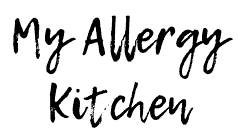What do you think of when you hear the term 'food allergies'? Have you ever heard of non-IgE food allergies?
Did you know there is more than one type of food allergy? There is the 'classic' food allergy reaction, which happens immediately and can include symptoms like hives, vomiting, and in severe cases, anaphylaxis. These reactions are caused by the immune system reacting to a food protein as if it is a foreign invader. These are known as IgE type allergies, as the body produces IgE antibodies in response to the food protein. At the other end of the scale are food intolerances, which can cause symptoms like bloating, diarrhoea and constipation. Food intolerances are when your body can't digest the food properly, making you feel uncomfortable and giving you an upset stomach, but the immune system doesn't get involved.
Delayed Allergic Reactions
But did you know there is another type of food allergy that is in between the two? Non-IgE allergies are a delayed immune system response to a food protein. They don't happen straight away when you eat the food, but can appear a few hours later. Symptoms can include vomiting, relux, heartburn, stomach pain, diarrhoea, constipation, trapped wind and blood and/or mucus in the stools. It can appear similar to a stomach bug. In severe cases, the body can become dehydrated or go into shock. These type of allergies can also be associated with eczema, which can appear anywhere on the body. If left untreated, in the long run these allergies can cause tiredness and in children, poor growth. In babies you might see symptoms like excessive crying and fussiness, drawing up their knees, refusing feeds or overfeeding, difficulty sleeping and explosive nappies.
These type of allergies are not as well known, but they still deserve attention. The symptoms are less severe but there is no medical treatment for them, so once you have a reaction you just have to ride it out (which can take several days or even weeks). There is no test for them, so it can be a long and difficult process to get a diagnosis. Because the reactions are delayed, it can be difficult to work out which food(s) are causing problems. They are managed in the same way as 'traditional' allergies, by completely avoiding the food, which still requires a huge amount of lifestyle changes.
Our Experiences With Non-IgE Food Allergies
My 4 year old has multiple food allergies, a mixture of IgE and non-IgE. The non-IgE allergies actually caused us more trouble than the IgE ones, because it was so much harder to work out which foods were causing her reactions. The symptoms mainly bothered her at night, so I spent many sleepless nights pacing up and down with her when she couldn't settle. She was never a great sleeper, but she would often be crying and unsettled for 2-3 hours in the middle of the night. This went on until about 11 months of age, when we started an exclusion diet to eliminate the foods. I also found that the GPs we saw were not aware of these types of allergies and it was a battle to get a referral (she is now under the care of a paediatrician, who thankfully has more knowledge about food allergies).
Obviously I am very glad that I don't have the worry of anaphylaxis in the back of my mind. But my daughter's allergies still cause her suffering - when she has a bad reaction it can take her a week to recover fully. We have still had to make the same changes to how we cook and eat. I have to check the ingredients of every item of food I buy. Our food bills are much higher because we have to buy more expensive 'free-from' items. Going out for a meal takes planning and preparation. When we travel and on days out, we have to bring our own food with us. For birthday parties, my daughter has to have her own food. Family gatherings are more difficult. Everything revolves around food!
The good news is that there seems to be a good chance of growing out of these types of allergies. That's certainly the case for us. My daughter used to have a long list of allergies and we are now down to just two, which is much easier to manage.
Does your child have non-IgE food allergies? What has your experience been?


[…] Emma has handled difficult topics very sensitively, and I'm pleased to say it covers both IgE and non-IgE food allergies. I think this would be perfect if your child has a lot of anxiety about their allergies, or you […]